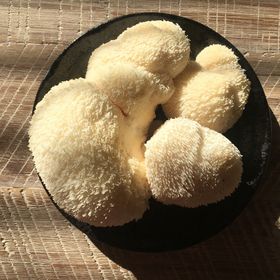How CBD and the Thyroid Are Related: Medications and Disorders
Updated February 3, 2023.

The thyroid is an endocrine gland that is responsible for producing hormones that regulate the body's metabolic rate, brain development, and bone maintenance. As with all bodily systems, the thyroid can break down and function poorly, thus needing medical influence to prevent the associated danger.
The thyroid contains a number of cannabinoid receptors (CB1 and CB2), which is the reason for individuals claiming that cannabidiol (CBD) can be used as a treatment of various thyroid conditions. In this article, we will break down the potential for this effectiveness, as well as touch on the interactions between CBD and thyroid medications.
Why People Take Thyroid Medication
Although there are many different thyroid conditions, all of them contribute to one of two main types of thyroid disease: hypothyroidism and hyperthyroidism, which are simply defined by the thyroid producing the wrong amount of hormones.
Hypothyroidism
Occurs when the thyroid produces too little hormones, and can be caused by a number of factors including, but not limited to:
- Thyroiditis
- Hashitomo's Disease
- Iodine deficiency
Reduced hormone production can lead to the following symptoms, among others:
- Fatigue
- Weight gain
- Heavy and frequent menstruation
- Dry skin and hair
Although the sub-conditions that lead to hypothyroidism can sometimes be treated, there is also a general treatment that involves replacing the missing hormones with a medication called levothyroxine.
» Hydrate your skin with CBD-based Soothe Skin Balm by Cannabotech
Hyperthyroidism
Occurs when the thyroid produces too many hormones, and can be caused by a number of factors including, but not limited to:
- Thyroiditis
- Graves' Disease
- Excessive iodine
Increased hormone production can lead to the following symptoms, among others:
- Anxiety
- Weight-loss
- Insomnia
- Muscle weakness
» Beat insomnia with CBD, check out our Beauty Sleep Drops
Hyperthyroidism can be treated in a number of ways, such as with a medication called methimazole (Tapazole) or Propylthiouracil that restricts the thyroid from producing excess hormones.
Does CBD Interfere With or Affect Thyroid Medication?
Currently, there is no scientific evidence to verify whether there are interactions between CBD, levothyroxine, and other thyroid medications. However, some assumptions can be drawn based on the scientific knowledge we have about interactions between CBD and other medications.
Firstly, both CBD and most thyroid medications are metabolised by the same enzymes, and so taking them simultaneously would result in them having to compete for metabolism and thus lower the effectiveness of both.
Secondly, taking CBD together with other medications sometimes results in a potential increase in side effects experienced as a result of the medication.
There is anecdotal evidence to suggest that the side effects of taking the substances together would be relatively low, but should still be separated by a few hours and monitored closely.
CBD as a Standalone Treatment: A Final Thought
The short answer to CBD oil's effectiveness as a treatment for hyper or hypothyroidism is that more research is needed.
However, there is some scientific evidence to suggest the efficacy of using CBD products to treat certain symptoms associated with thyroid conditions, namely:
- CBD oils or tinctures can potentially help decrease the inflammation and pain caused by a problematic thyroid, as well as potentially alleviate the associated anxiety and depression.
- CBD balms can be applied topically to alleviate skin and hair conditions.
Although there is hope that CBD can help in regulating a functioning thyroid and alleviating the symptoms caused by problematic ones, you should always consult with your doctor before trying to fix serious medical conditions on your own.








